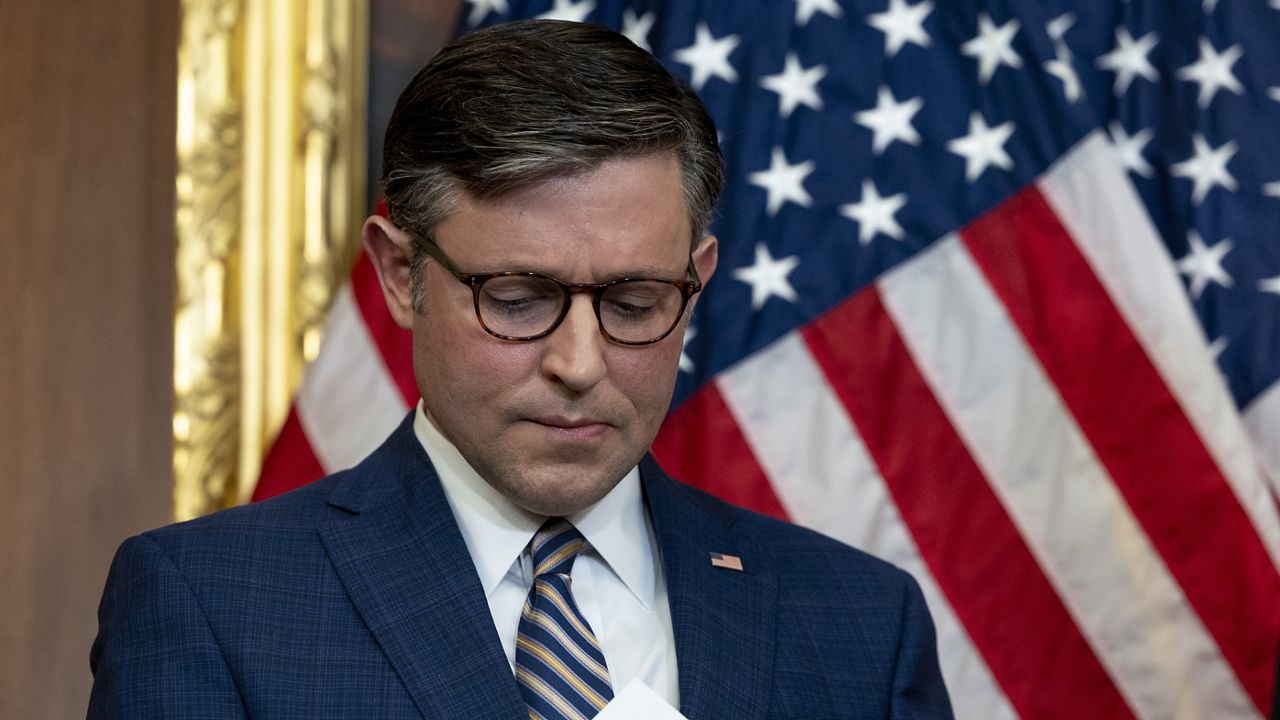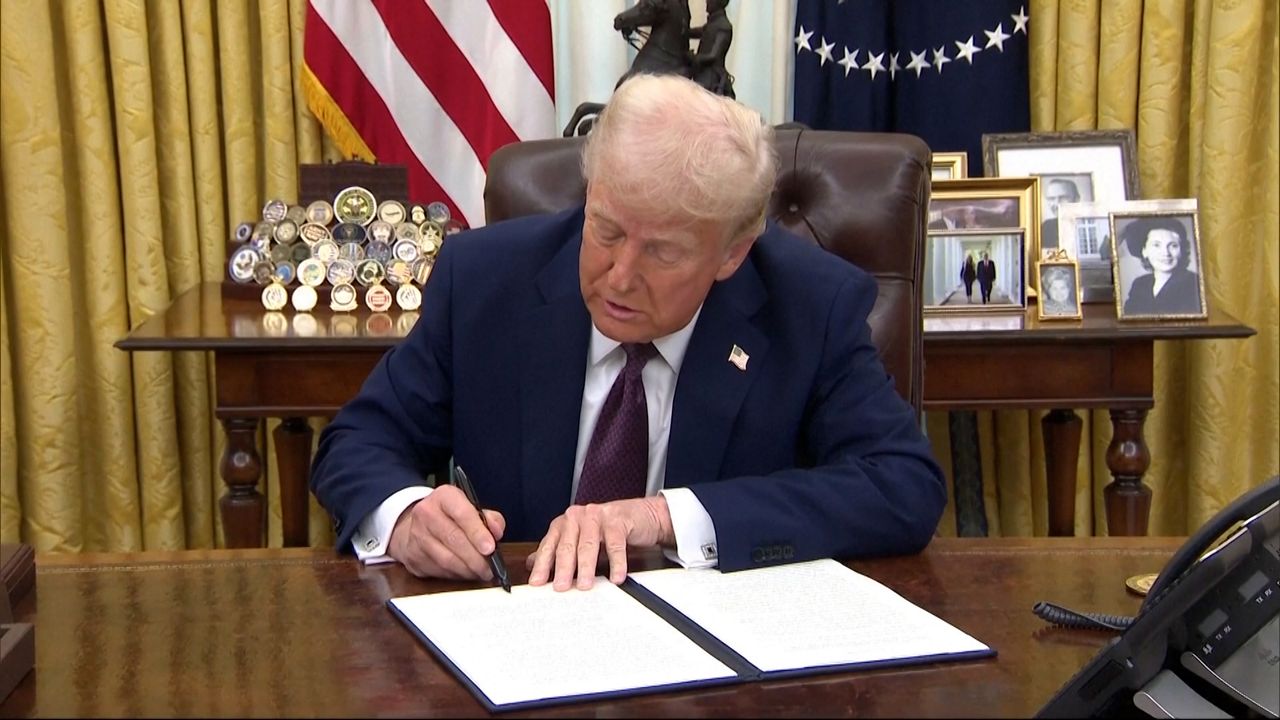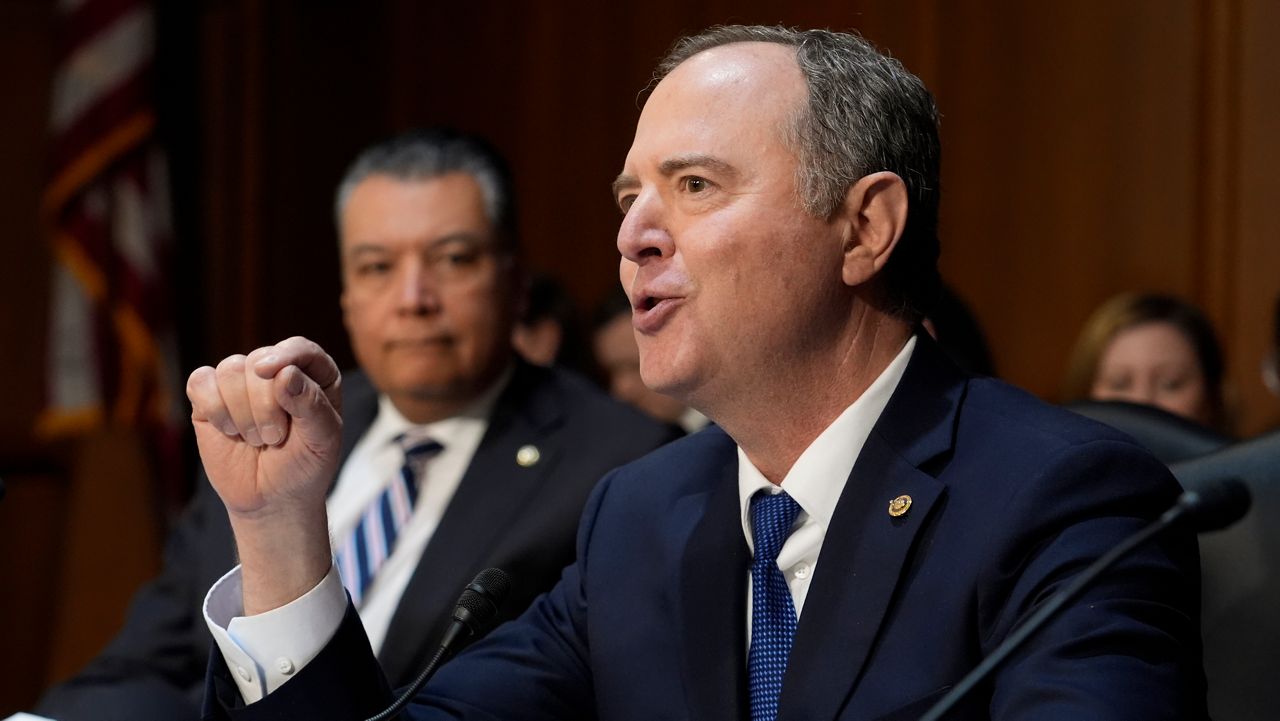With just days to go until the Nov. 17 government funding deadline, the House GOP, led by newly elected Speaker Mike Johnson, R-La., suffered a setback in its efforts to pass government funding bills.
House Republicans on Thursday pulled their financial services spending bill — which funds multiple agencies, including the Treasury Department — just hours before it was set to come to the floor for a vote. Moderate Republicans were put off by some anti-abortion provisions in the measure, while conservatives were outraged that it contained millions of dollars to fund the FBI’s new headquarters.
It was the second such setback this week for the House GOP majority, who also pulled a Transportation, Housing and Urban Development spending bill this week over opposition to some cuts to Amtrak funding.
“Considering these two partisan funding bills was a waste of time that we should have spent debating serious proposals to keep the government open,” said Connecticut Rep. Rosa DeLauro, the top Democrat on the House Appropriations Committee. "Their partisan bills cannot pass. It is time for us to start negotiating full-year bills as House and Senate Democrats and Republicans have done in the past."
Before the financial services bill could be pulled Thursday, House lawmakers in both parties voted down an amendment from New York GOP Rep. Claudia Tenney that would have lowered White House press secretary Karine Jean-Pierre's salary to $1 — a signal of how partisan the process of government appropriations has become.
The path forward on averting a shutdown next week, likely via a short-term government funding measure, is unclear. Speaker Johnson has floated what’s known as a “laddered” continuing resolution, which would set deadlines for each of the 12 individual appropriations bills rather than temporarily extending government funding in one fell swoop.
But lawmakers on both sides of the aisle — and in both chambers of Congress — are skeptical about that approach, signaling that it might not be able to pass.
“No one can explain the ‘laddered CR’ because no one knows what it means,” California Democratic Rep. Sydney Kamlager-Dove told Spectrum News on Thursday. “No one on the House side or even on the Senate side.”
“I think what it means is the speaker has made some promises to his ultra-conservatives, to his anti-institutionalists, that he can't cash,” she continued. “We need to be working on a clean CR that puts all of these appropriation bills together so that we can vote on it and fund the government and do the work that the American people want us to do.”
Maine Sen. Susan Collins, the top Republican on the Senate Appropriations Committee, told reporters Thursday that she had a good meeting with Johnson about the “laddered” approach, but she “still has reservations” about the new speaker’s plan.
“I still think it adds complexity and the possibility of more than one government shutdown to the process,” she told reporters.
Collins’ Democratic counterpart on the Appropriations panel, Sen. Patty Murray, D-Wash., took a more blunt approach, calling it “the craziest, stupidest thing I’ve ever heard of.”
Johnson is also reportedly weighing a short-term funding proposal which includes billions of dollars in aid for Israel and would establish the creation of a fiscal commission, according to Punchbowl News.
“Whatever we do, I don't think anybody in the Republican Party truly wants to shut down the government,” Rep. Troy Nehls, R-Texas, said Thursday.
At a press conference on Thursday morning, House Democratic Leader Hakeem Jeffries, D-N.Y., called for his Republican colleagues to put forward a “clean” spending bill, saying that his conference is “not going to pay a single right-wing ransom demand” in order to keep the government open.
“We've not done it in the past,” he said. “We’re not going to do it today. We're not going to do it tomorrow.”
“A continuing resolution that is at the fiscal year 2023 levels is the only way forward because that’s the status quo,” Jeffries added.
The White House also condemned House Republicans for "wasting time on radical bills," which they say violated the spending agreement President Joe Biden struck with then-Speaker Kevin McCarthy to raise the debt limit.
"These partisan bills break the bipartisan agreement that two-thirds of the House Republicans voted for," White House principal deputy press secretary Olivia Dalton told reporters aboard Air Force One on Thursday. "Now they can't even pass them in the House."
"The clock is ticking," Dalton said. "We're just eight days from a shutdown that would undermine our economy and national security, hurting families and businesses across our country in the process. An extreme Republican shutdown would force service members and law enforcement officers to work without pay, risk significant delays for travelers, undermine public health, and cut off funding for small businesses."
"That is unacceptable," she continued. "House Republicans should stop playing political games and follow the lead of the Senate by getting to work on bipartisan bills that deliver for the American people — do their jobs to prevent a shutdown."
Amid the squabbles in the House, Senate Majority Leader Chuck Schumer, D-N.Y., took a procedural step Thursday that sets up a vote next week to temporarily fund the government.
“Today I am taking the first procedural step for the Senate to move forward on a legislative vehicle we can use next week to pass a temporary extension to avoid a government shutdown,” Schumer said, adding: “I earnestly hope we can reach an agreement sooner rather than later.”
Lawmakers in the Senate have already combined three of their fiscal spending bills — Agriculture, Transportation-HUD and Military Construction-VA — into a package known as a “minibus,” which they passed last week. They are currently discussing combining the remaining nine appropriations bills into a “maxi-bus” in an effort to speed up the process and get the rest passed.








